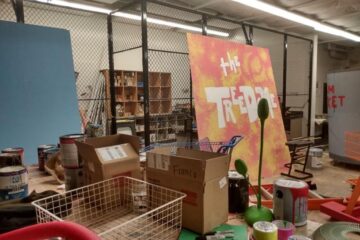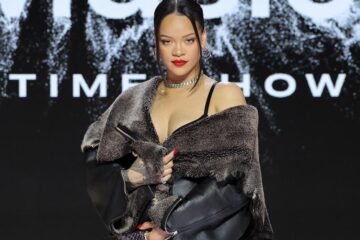I’m proud to produce song featuring American rap star, Snoop
In 2011, Eternal Nnamdi Mbamara debuted in the entertainment industry when he released his first gospel album, Walking on H20. Today, as a prodigiously talented producer, he has his imprint stamped on several award winning music projects across the continent.
Born in Benin City, Edo State but hails from Imo State, Mbamara’s love for music began at an early age when he was exposed to church music and cultural festivals.
Formerly known as Eternal 3:16 and now Eternal Africa, Mbamara had a chance meeting with Alex Okosi, former Executive Vice President and Managing Director, VIMN Africa & BET International, and his life changed.
Okosi recognized Eternal’s talent and invited him to South Africa to take part in an audio training programme. Afterwards, Eternal decided to stay back in the rainbow country, where he was involved in church choir activities, writing songs, and playing the keyboard and drums. He also worked with a consulting firm, providing audio and music services for the outfit.
Eternal Africa worked on compositions for AFREXIM Bank, African Union, and United Nations’ documentaries among others. As an artiste, he performed at various festivals and events in South Africa. And as a producer, he’s a major influence in the country’s music industry.
In this interview, Eternal Africa, who is now back in Nigeria, traced his career trajectory and concluded that it’s work-in-progress.
Tell us briefly about your background.
My name is Eternal Nnamdi Mbamara also known as Eternal Africa. I am a music producer and sound engineer. My trip to South Africa inspired me to rebrand and change to Eternal Africa because I had the opportunity to produce artistes from various African countries. I also started an event called African’s Gala Evening, which I used to promote unity, love, taste and sound of Africa.
How exactly did you come into music?
From childhood, my parents were involved in church ministry. That was in Benin City. I’m from Imo State but was born in Benin. My dad took me to a church where he enrolled me to learn how to play piano. I was nine or 10 years old then and I used to play traditional instruments like Conga. Also, I grew up in a royal environment where I was exposed to lots of cultural events and festivals. So, my interest in music started from there.
Is any of your parents a singer?
Oh no, none of my parents is a singer. But they were involved in cultural activities and festivals, because my grandpa owned cultural groups like the masquerades. And in our compound, we had lots of traditional instruments like conga, talking drum, gong, maracas, flute, and wooden guitar. So, I started learning how to play some of these instruments.
Okay, at what stage did you decide to go into full time music?
That was during my university days. I attended Nnamdi Azikwe University where I studied Parasitology and Entomology. When I was 18 or 19 years old, my dad gave me some money to record a song. He took me to a studio in Ikeja, Lagos where I recorded a gospel song called ‘Mbakosa Christmas’.
In my second year in the university, I started a company, Studio316 with two other people in Onitsha. So, from university, I was making money while producing music.
What made you change from a recording artiste to music producer?
I didn’t change; I was combining both. For production, I love developing new talents. When I see a talented person, I would want to create something out of him; and that was the drive behind my being more of a music producer than a recording artiste.
Can you mention some of the artistes you have worked with as a producer?
In Nigeria, I have worked with DJ Neptune, Patoranking, Goya Menor, Joe El, Eltee Skhillz, Niniola and many more. I have been part of their productions. Also, I have worked with lots of artistes from South Africa to Uganda.
Can you tell us a particular big song you have produced?
It’s ODG (Odogwu Na De Spender) by Eltee Skhillz. I produced that song. I first did Lucy remix with him and Niniola, and it turned out to be one of his best songs. He then said he wanted another big song. That was how ODG came about. Actually, I was supposed to release that song myself.
Why did you now give it to Eltee Skhillz?
That’s one thing about me; I love developing artistes. I love seeing artistes shinning. It’s a passion I have. Though, I didn’t know that the song was going to be that big. The whole idea behind it was the song, Ameno Dori Me. No, it wasn’t that of Goya Menor. It wasn’t Goya Menor that first did the song. Ameno Dori Me is usually played in the club anytime they want to pop champagne. So, I said ‘this song is not an African song. Let me do an African version of it’. That was when I did ODG (Odogwu Na The Spender), which means when you’re popping champagne in the club, you are an Odogwu, a big spender.
I wrote, created and designed the song. He (Eltee Skhillz) came to the studio around that time and heard the song. He said ‘Eternal, give me this song please’. I declined initially. But when I saw the fire and the passion in him, I said ‘okay, run with the song’. He ran with the song and it became big.
And did he compensate you for it?
Definitely! Aside paying for my studio time, the royalties are also there; those things will definitely come. I own 50 percent co-composition of that work.
Do you have any regret that you didn’t do the song yourself?
No, no, no. I really wanted to come out as a producer first. I didn’t want to come out as a recording artiste. So, I think it’s a good foundation for me.
Are you sure you can re-enact such feat again?
The fire, inspiration and gift in me are so enormous; I can’t exhaust them. It’s like going to the ocean to fetch water; you cannot exhaust water in the ocean. I have produced a lot of international artistes like Amifaku and Lungisa Shamela. They are both SAMA (South African Music Awards) winning artistes. The year was 2020. Amifaku won award for the Best Afropop Act album at the South African Music Awards, while Lungisa Shamela won award for the Best R&B and Soul album. I produced the two award-winning albums titled, Imali and From My Heart to Your Soul respectively. I have also produced some top artistes like Manuwo Star, a South Africa-based Congolese artiste. I co-produced his song titled, Naningi. I also produced his EP. In fact, I was part of his musical development. The Amifaku’s song that I produced came about when I produced Niniola’s song, Maradona. I produced the cover of Maradona for Amifaku, but he rendered the song in Xhosa language and it won an award at SAMA, and became viral in South Africa. I also produced the song, Go Down that was used for the AFCON South African television commercial tagged: ‘Experience the Unforgettable’. That was in 2019.
You were in South Africa for some years, what took you there?
I met Alex Okosi in Onitsha, where I wrote a tribute song for his late father. He listened to the song and was amazed at my production expertise. There and then, he took interest in me and later invited me to South Africa for an audio training programme. After the training, I decided to stay back in the country. I just wanted to know what the country has for me, and I found love there. I started working in South Africa and many people loved me, and gradually my brand started growing. It was a long journey though; I met a lot of people.
For how many years did you stay in South Africa and why did you leave?
I spent eight years in South Africa. Throughout my stay in the country, I didn’t experience any xenophobic attack because of my environment, and the kind of people I mingled with due to my skills. I came back to Nigeria to network, to see what the industry has in store for me.
How would you compare the South African music industry and that of Nigeria?
The South African music industry is blessed with good administrative structure. There, things are accessible but here in Nigeria, it’s kind of complicated. In South Africa, things are always in order. There is easy access to industry people. South African music stars are so humble and down to earth. But here in Nigeria, before you can meet Davido or Wizkid or even Burna Boy, it’s quite a lot of work.
What’s your opinion about Afrobeats generally? Do you think we are getting it right?
Afrobeats is the heartbeat of music in Africa. I think we are getting it right when it comes to the quality of our production. But in terms of administration, I don’t think we are there yet. I would want us to have our own music streaming platforms like iTunes, Spotify etc. It’s like our petroleum. We have oil abundantly in Nigeria but who is refining it for us? That’s exactly what is happening to our music. We have good music in Nigeria, our Afrobeats is everywhere but the white people are the ones controlling the market. So, we need to have control over our music, by having our own digital streaming platforms.
Is Eternal single or married?
I am single.
Describe your kind of woman.
My kind of woman must be beautiful, kindhearted, and must believe in the vision of marriage. Marriage is an institution, so my woman must first believe in the institution called marriage. And when she believes in the institution called marriage, she must be ready to act on it. When you are married, you must be identified as a married person. You must not break the vow. However, I am yet to find somebody that fits my description. I am still searching. In fact, it’s one of the reasons I came back from South Africa. I am in Nigeria in search of love. No, I am not under any pressure to marry. I’m the first son of family of five, which could bring some pressure, but I am not feeling any pressure. It’s just that I am ready (to marry).
Let’s talk about the Snoop Dogg project. How did you get involve in it?
I got involved in the project through Kenny Ogungbe. He contacted me and said there’s a big project involving Snoop Dogg and he would like me to be the producer of the song. It’s an Afrobeats Amapiano song titled, Can’t Let Go by Honorebel and it features Snoop Dogg, Goya Menor and Joe El. The track was released in August this year. So, I am proud to produce a song that has legendary Snoop Dogg on it. I believe it’s going to get me more production jobs from America.
What’s your advice for the up and coming artistes?
The industry is crowded and busy. So, they should not be too much in a hurry to blow. Just keep doing what you know how to do best. As you do it slow and steady, you will be lucky someday to see someone who will trust your talent, and is ready to invest in it.

